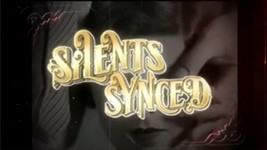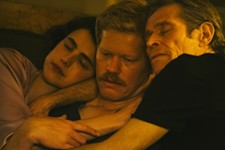Night Flight Flies Again
Stuart Shapiro resurrects his Eighties underground variety show
By Richard Whittaker, 9:00AM, Sun. Apr. 10, 2016
Stuart Shapiro doesn't seem the kind of guy that turned TV on its ear. Tall, graying, soft-spoken, he looks more like the IT innovator that he's become than the man that brought underground culture to cable TV. But that's exactly what he did for nearly a decade with USA Network's Night Flight.
The eight-hour programming block has been called one of the greatest slabs of rock & roll television, showing everything from punk showcase New Wave Theatre to bottom of the barrel B-movies like The Terror of Tiny Town to transgressive arthouse creations like Flesh for Frankenstein. Dubbed kaiju shows rans alongside sermons from the Church of the Subgenius and documentaries about video artists. This Sunday, April 10, Shapiro brings a little slice of his eclectic, daring, and visionary show to the Alamo Ritz.
In 1980, Shapiro was a film producer and distributor. It was the golden age of indie film, and under his International Harmony shingle he'd been responsible for titles as diverse as Neil Young's Rust Never Sleeps and the Sex Pistols DOA. He went to the nascent USA Network (which had only recently changed its name from the Madison Square Garden Network) with a very simple elevator pitch. Instead of late night dead air or tennis reruns, why not attract a young audience? "Literally," Shapiro said, "they were going off the air at one o'clock in the morning."
He used his own experience with indie films and music docs to prove his point: screening movies on the midnight circuit "to thousands of kids, totally fucked up because in those days you could smoke and drink in a movie theater." He said, "Most of those movies did no business at 8 o'clock at night. They started to do business at 10 o'clock, and then the midnight shows, which started at 11 o'clock or 12:30, they were really all the sell-outs."
USA management got it, and gave him a test run: Two hours on Friday and Saturday night from 11pm to 1am for three months. Shapiro provided the movies, and they'd go 50-50 on the advertising. That sounds like a great deal, but there were no advertisers to split, and this was a time when most distributors saw having their film on basic cable as a less credible business decision than setting the print on fire. However, Shapiro was thinking differently. He said, "Coming from the independent world, I knew that any independent filmmaker wouldn't just sell his mother but sell anything for $5,000, so I said, 'Hey, give me a little bit of money, and I can buy movies without stop.'"
The deal paid off, big time. After the three month trial, USA gave him four hours, then eight hours (which he filled by repeating the first four hours), two nights a week. The block lasted for seven years, then came back in syndication in the Nineties. Shapiro said, "We were paying for programming, there were people who wanted to be on it, and it was like a train that never wanted to stop."
Sometimes the programming was a little more radical than he intended, like accidentally broadcasting an uncut version of The Clash's Rude Boy, featuring an uncensored bathroom blow job (USA hired a censor after that one), or not realizing that time zones differences meant that material perfect for New York after midnight was screening prime time in L.A.
But this wasn't just about filling air time. This was what Shapiro thought cable needed to be, the radical alternative to fuddy-duddy old broadcast. He said, "I felt, and I still feel to this day, that it was a spiritual mission of providing a cultural view on a world that we knew existed." It was programming for the club kids that couldn't get to clubs, the small-town teens that knew there was more to TV than Hart to Hart. Shapiro said, "The other thing I hear a lot of times is, 'Well, my older brother let me hang out at night, so while he was smoking pot, I could watch Night Flight."
In keeping with the DIY punk ethos that fired much of his content, Shapiro did everything: producing, directing, picking shows, even personally delivering the one-inch tapes from the studio to the USA Network uplink transponder in New Jersey. He shortens his job description to one word: alchemy. "Producing is alchemy," he said. "It's creating something out of nothing. The most important component to being a producer is to be able to project that you're going to be able to finish the project that you're talking about. What is alchemy? It's conversion, making lead to gold. Producing is taking an idea and realizing the idea. The French call a director a realisateur. That's a realization, not neccessarily directing the way we'd look at it."
After USA finally canceled Night Flight in 1988, Shapiro had an eclectic career, producing the webcast of Woodstock '99, creating the Impact Video Magazine series with Bill and Ted star and Freaked director Alex Winter ("Matter of fact, there's a character called Stuey in Freaked, which is kind of my homage"), pioneered streaming music subscription with Patronet, and his current day job as founder and president of iConstituent, which provides online communications for federal and local government and office holders.
But now he's bringing Night Flight back, live, with a series of shows (starting with this Sunday resurrection at the Alamo Ritz), and online with Night Flight Plus, a subscription service offering access to the entire Night Flight archive, and a lot more besides.
Shapiro's plan is basically for Night Flight Plus to become the virtual museum of Eighties dissident culture. "Every weekend, we're going to put up new content," he said, "hundreds and hundreds and hundreds of shows." It's not just old episodes of Night Flight: he's already got content from fellow cultural insurrectionists MVD Video to access their deep archive of cult films and documentaries, plus he's starting the search for the best Eighties counterculture material from around the world. He said, "No fear that there's not going to be a lot to keep people occupied."
Night Flight: Born Again, April 10, 8pm, Alamo Ritz, 320 E. Sixth. Free: reserve a seat with a $5 food and drink voucher at www.drafthouse.com
To join Night Flight Plus, visit www.nightflightplus.com. Subscriptions start at $2.99 a month or $29.99 a year.
A note to readers: Bold and uncensored, The Austin Chronicle has been Austin’s independent news source for over 40 years, expressing the community’s political and environmental concerns and supporting its active cultural scene. Now more than ever, we need your support to continue supplying Austin with independent, free press. If real news is important to you, please consider making a donation of $5, $10 or whatever you can afford, to help keep our journalism on stands.
Richard Whittaker, May 25, 2017
Richard Whittaker, May 8, 2015
June 27, 2024
June 28, 2024
Alamo Ritz, Night Flight, Night Flight Plus, Stuart Shapiro











